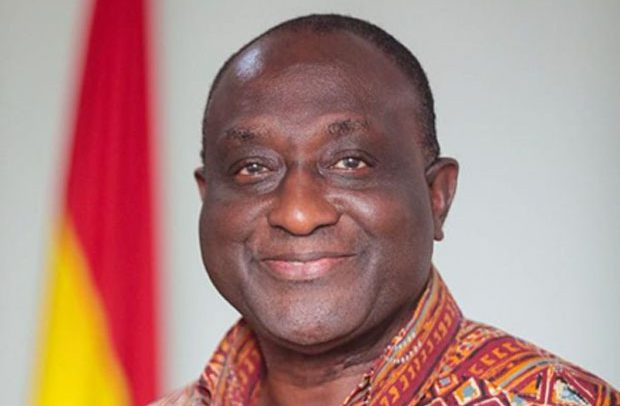Minister for Trade and Industry, Alan Kyeremanteng
Ghana has been ranked first among 16 West African countries in a trade and investment market league table by the American credit rating agency, Fitch Solutions, with a Trade and Investment Risk score of 50.9 out of 100.
According to Fitch Solutions, the country outperformed the West Africa average of 36.4 and ranked in a competitive 2nd position regionally, and in 88th place out of 201 markets globally.
Similarly, with a Crime and Security Risk score of 51 out of 100, Ghana outperformed the West Africa average of 33.3 and ranked in 1st place regionally and in 90th place out of 201 markets globally, the rating agency added.
The latest international comparisons, compiled by the Fitch Solutions, emphasise the success of Ghana’s trades and investment systems, strong market fundamentals and a strong performance from the President Akufo-Addo-led New Patriotic Party (NPP) government in the midst of the global crisis.
Deviation
Fitch Solutions, in a report published May 24, 2022, however, indicated that the country’s construction industry would grow by 4.1% year-on-year in 2022, which is considered to be a slowdown compared to the estimated growth of 5.7% year-on-year in 2021.
“Unlike in other markets, Ghana’s infrastructure construction industry is unlikely to benefit from higher oil and gold prices, as we expect thatincreased public revenues will be channelled towards debt servicing and Ghana’s high public wage bill rather than capital projects,” the report explained.
It elucidated further that this is also because Ghana’s access to international capital markets would be constrained in the near term, intimating, “Accordingly, we forecast government capital expenditure to shrink to 3.3% year-on-year of GDP in 2022 and 2.9% year-on-year of GDP in 2023, down from 3.7% year-on-year in 2021.”
The Fitch Solutions report said “while this puts capital expenditure levels above those in 2018-2020, when Ghana’s construction industry growth averaged -0.1% per year, it remains below the comparatively high annual average levels of 4% of GDP between 2010 and 2017, which enabled the construction industry growth rates averaging 8.1% per year.”
In 2023, Fitch Solutions predicted that Ghana’s construction industry growth will accelerate slightly as “we forecast the depreciation of the Cedi against the USD to slow down to 4.6% year-on-year”
Generally, it noted that this would reduce revenue risks for foreign investors, while lower inflation will improve demand for residential and non-residential construction.
It, however, stated that the country’s access to international capital markets would remain constrained and continue to weigh on public infrastructure spending as well as the market’s construction industry growth.
Currency Depreciation
It also pointed out that despite the market’s strong fundamentals, including a track record of private investment in energy infrastructure, comparatively high political stability and security, and a relatively diverse competitive landscape, they expected that a substantial depreciation of the Cedi against the US Dollar this year would in the near term make private investors more reluctant to invest in Ghana’s infrastructure sector.
By Ernest Kofi Adu


